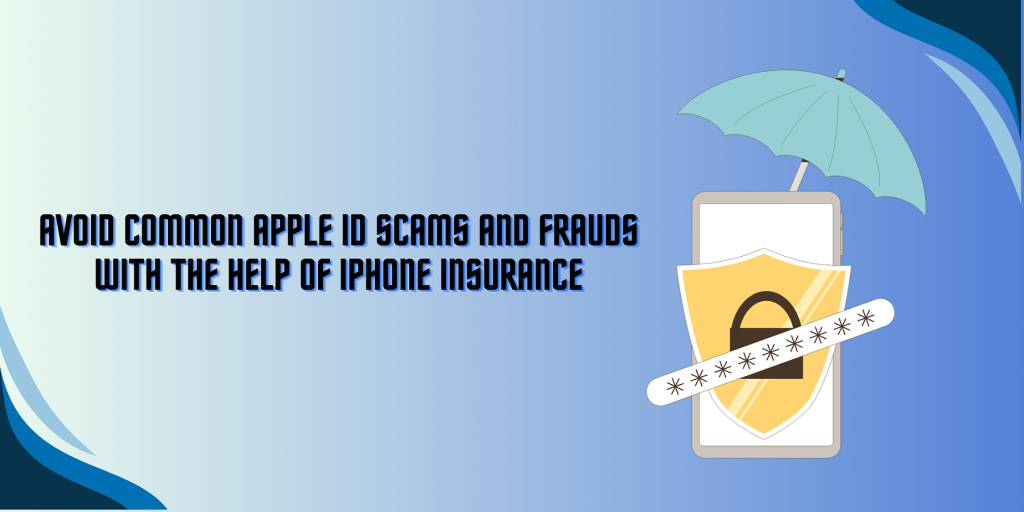In this blog, we’ll explore how you can protect yourself from common Apple ID scams and frauds and how having iPhone insurance can be a valuable part of your strategy for safeguarding your digital identity.
Understanding Common Apple ID Scams and Frauds
Before we dive into prevention strategies, it’s essential to recognize the types of scams and frauds targeting Apple ID users:
- Phishing Scams: These involve fraudulent emails or messages that appear to come from Apple, asking you to click on a link and provide your Apple ID credentials. The goal is to steal your login information.
- Account Takeovers: Scammers might use stolen credentials or guess weak passwords to gain unauthorized access to your Apple ID, leading to potential misuse of your account.
- Fake Apple Support Calls: Fraudsters may impersonate Apple Support representatives and request your Apple ID credentials or personal information under the guise of solving an issue.
- Malware and Spyware: Malicious apps or software can compromise your device and collect sensitive information, including your Apple ID details.
- Fake Apple Websites: Some scams involve creating websites that look like legitimate Apple sites to trick you into entering your Apple ID credentials.
How iPhone Insurance Can Help?
While iPhone insurance primarily covers physical damage and theft, it can also play a role in protecting your Apple ID through the following ways:
1. Restoring Access After Theft or Loss
If your iPhone is stolen or lost, having insurance can provide you with a replacement device. This quick replacement reduces the time your Apple ID could be vulnerable if someone gains access to your stolen device.
2. Professional Support for Recovery
Many iPhone insurance policies come with access to professional support services. These experts can assist you in recovering your Apple ID, resetting passwords, and securing your account from potential breaches.
3. Tracking and Remote Wiping
Some insurance policies offer services that include tracking your lost or stolen iPhone and remotely wiping its data. This feature helps protect your Apple ID and other sensitive information from falling into the wrong hands.
4. Claims Assistance
In the unfortunate event that your iPhone is compromised and you need to make a claim, having insurance means you’ll have support to navigate the process, ensuring that you recover your device and secure your Apple ID as quickly as possible.
Tips for Protecting Your Apple ID
While iPhone insurance provides an added layer of security, you should also take proactive measures to protect your Apple ID:
- Use Strong, Unique Passwords: Create a strong password for your Apple ID that includes a mix of letters, numbers, and symbols. Avoid using the same password across multiple accounts.
- Enable Two-Factor Authentication (2FA): Activate 2FA for your Apple ID to add an extra layer of security. With 2FA, even if someone has your password, they will need a verification code sent to your trusted device to access your account.
- Be Cautious with Phishing Attempts: Always verify the legitimacy of any communication claiming to be from Apple. Don’t click on links or provide personal information unless you’re sure the request is genuine.
- Monitor Your Account Activity: Regularly check your Apple ID account settings for any unauthorized changes or unfamiliar activity.
- Install Security Updates: Keep your iPhone and other devices updated with the latest security patches and software updates to protect against vulnerabilities.
- Use Security Software: Consider using reputable security software that can help detect and block malicious apps and websites.
Conclusion
Safeguarding your Apple ID is of utmost importance. Although iPhone insurance alone cannot prevent scams or fraud, it plays a critical role in a comprehensive strategy for protecting your digital identity. By integrating insurance with proactive security measures, you can substantially mitigate the risk of Apple ID scams and ensure your personal information remains secure.
